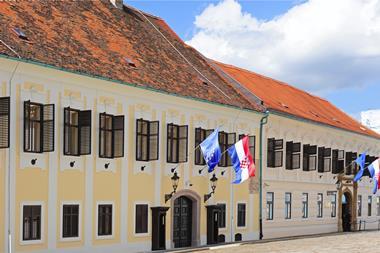Controversy over changes to promotions and retirement age send the reforms back to the drawing board
The long-awaited reform of Croatia’s science and higher education policy suffered a sudden setback last week when the prime minister, Zoran Milanovic, backtracked on the left-wing government’s changes to the existing science laws, leading a key science ministry official to offer his resignation.
The law proposed a series of changes, including contract-based funding of research activities. Two of the most controversial changes were limiting the number of professors who can work after 65, to give younger researchers a chance, and changing the promotion system for researchers. As the bar to promotion is currently so low there are a huge number of people in high ranking professorships: a third of the country’s researchers have the highest ranking job title, full professor.
The conflict over the science reforms erupted at a meeting of the biggest party in the ruling coalition, the SDP, on 26 September. Insiders say changes are being blocked by a politically powerful lobby from law, economy, philosophy and medical faculties, who are benefiting from drawbacks of current policies, which provide very little oversight of how senior professors and faculties spend public money.
A spokesperson tells Chemistry World that Sasa Zelenika, the ministry official in charge of science, is still considering whether or not to resign. She adds that the ministry supports further improvements to the law, so long the changes do not dilute the essence of the reforms.
Meanwhile, Milanovic maintains the law was pulled to reach agreement among the coalition partners on some of the stumbling blocks, such as the suggestion that professors must retire at the age of 65. A group of high-profile scientists have published an open letter in response to the move, saying that political will to implement the reforms still seems to be lacking.
Successive governments have struggled to update Croatian science legislation in order to reward excellence and discourage poor performance. Current laws still allow for the majority of science projects to be funded in a holdover from communist-era policies and they have also lead to an ‘inverse pyramid’ structure where the system is overloaded with senior professors.
Previously, a right-wing government failed to push through a much debated set of policies, and when the new government took over in December 2011, the science ministry promised to pass a raft of urgent changes and then come up with a new set of laws. The sudden retraction of even the ‘cosmetic changes’ to the existing law has got many worried that the current government will also fail to reform the ailing science system. The changes are now going to be discussed further before returning to parliament.
Matko Marusic, a professor of medicine at the University of Split, says that the 2002 science law gave faculties and universities unlimited autonomy, which is being misused so that even criminal activities cannot be sanctioned (recent government reports found a series of financial irregularities at many of the faculties and research institutes). The same people who passed those laws are now blocking the changes, he says, giving his full support to the reforms. ‘Current laws enable idleness and corruption and fully protect them and, therefore, encourage them.’
Stjepan Marcelja, a visiting applied maths fellow at Australian National University, says the final law will likely be ‘a pale compromise’ and ‘a watered down attempt’ to avoid conflict with the powerful faculties. He adds that most of the policy recommendations from a paper he authored in 2005 when Croatia was still in negotiations on EU entry are still valid today.












No comments yet